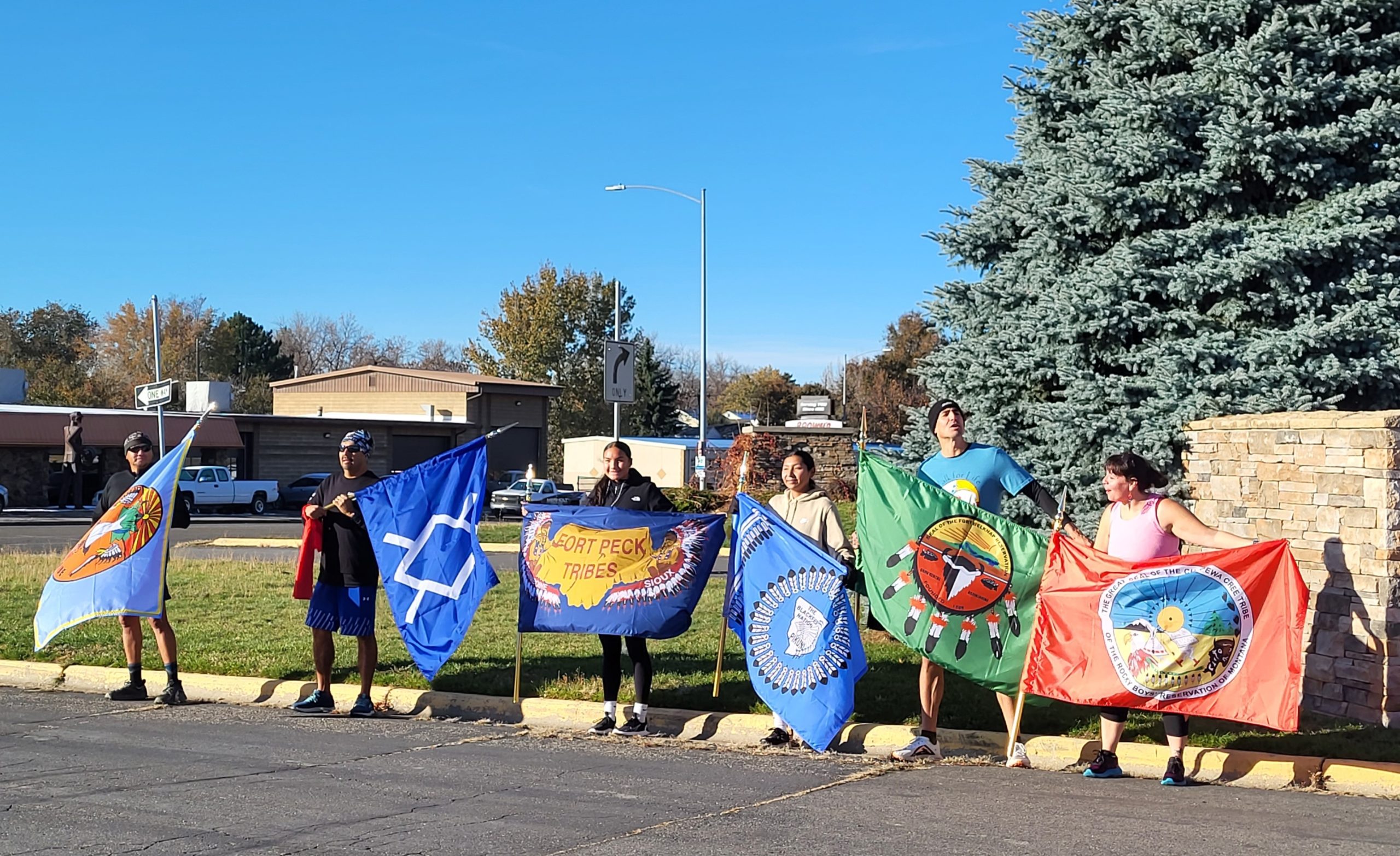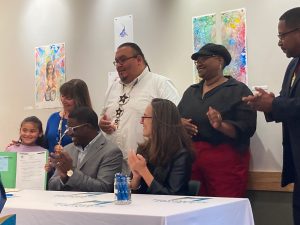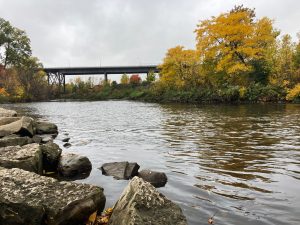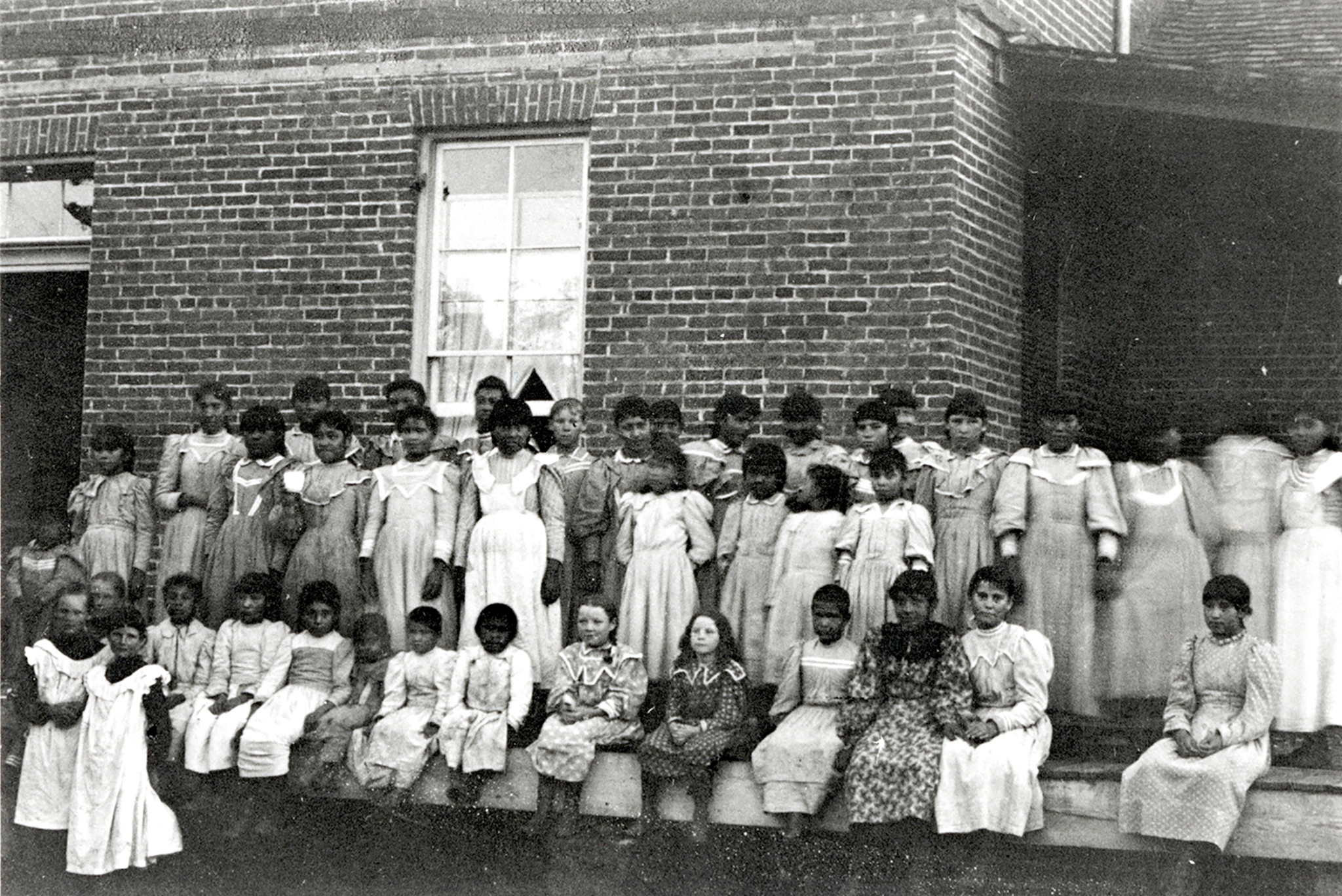Podcast: Play in new window | Download | Embed
The Mashantucket Pequot Tribal Nation’s farm in Connecticut is thriving since its establishment eight years ago.
Back then, the land was a largely unused wooded area near the reservation.
Edwin J. Viera has an update.
Meechooôk Farm is home to livestock and several greenhouses growing a bevy of crops.
Tribe Agricultural Director Jeremy Whipple spearheaded the project, and this year, the University of Connecticut Extension helped establish a youth engagement group for agricultural training.
Whipple says the training’s focus is to strengthen the tribal community and establish self-sufficiency.
“So we’re going to train the community – you know, it’s community-based. So, we’re trying to get the membership and everybody on the same page, on growing and bringing back our traditional roots for gardening in our culture.”
One aim is to teach the importance of good nutrition to members of the tribe dealing with health issues.
The U.S. Department of Agriculture has funded the project for an additional four years due to its success.
Whipple says he hopes to expand the farm, and will apply for grants to add a meat-processing facility and an event space for classes.
For now though, Whipple and his cohort of farmers are looking to add more greenhouses.
While some of the food grown at Meechooôk Farm is sold, most of it goes to a tribal food assistance program.
He describes how that program has gone so far.
“Right now, we have 180 members that are signed up for the program, and the grant reimburses the farm $70 a box that we give out. So that’s, you know – the USDA actually compensates us for feeding the community healthy food.”
Members of the Tribe receive a box of vegetables every two weeks during the growing season.
This story was produced with original reporting from Jeniece Roman for WSHU and a Solutions Journalism Network-Public News Service Collaboration.
 The movie adaptation of David Grann’s book Killers of the Flower Moon premiered a few weeks ago.
The movie adaptation of David Grann’s book Killers of the Flower Moon premiered a few weeks ago.
It examines the Reign of Terror, the mass murder of the Osage Nation in Oklahoma during the 1920s for oil money.
KUNC’s Emma VandenEinde reports on what some Osage people have to say about the film.
Many Osage people were impressed with how director Martin Scorsese reflected Osage culture in the movie.
Not only did he choose to film in Oklahoma, but he met with tribal members to ensure cultural accuracy – from the clothing to the language.
Some Osage people, like Colorado resident Tink Tinker, would have liked Scorsese to portray the movie from an Indigenous perspective.
“Unfortunately, he’s a white man who’s working with white money and selling our movie to a largely non-Native audience, so he couldn’t take the risk of putting the Osages in the center of the stage.”
It’s not the only criticism the movie has received.
Some think the nearly three-and-a-half hour movie is too long. But Tinker and other Osage people are happy the story is finally being shared, as many Americans are unaware.
Jay Kilbie Reed, another Colorado Osage person, says he’d often tell his family’s history to friends and be met with skepticism.
“Now I’ve had so many people that have texted me and been like, ‘This Leonardo DiCaprio movie is this the story you were telling me years ago?’ And I’m like, ‘Yes!’”
This movie is part of a recent rise in Indigenous stories and creators in the spotlight.
But Geoffrey Standing Bear, the principal chief of the Osage tribe, says action is key to keep lingering racism at bay.
“If you don’t say nothing, you just sit back and watch it, you’re complicit in murder. You’re complicit in what’s going on. You’ve got to understand, there’s a true story. And it can happen again.”
Standing Bear, along with other Osage people, hope this movie will serve as a catalyst for people to learn more about their history.
 U.S. Sen. Lisa Murkowski (R-AK), vice chair of the U.S. Senate Committee on Indian Affairs, is holding a field hearing at Yukon-Kuskokwim Health Corporation in Bethel, Alaska on Friday.
U.S. Sen. Lisa Murkowski (R-AK), vice chair of the U.S. Senate Committee on Indian Affairs, is holding a field hearing at Yukon-Kuskokwim Health Corporation in Bethel, Alaska on Friday.
It’s titled, “The Impact of the Historic Salmon Declines on the Health and Well-Being of Alaska Native Communities along Arctic, Yukon, and Kuskokwim Rivers.”
Tribal leaders are expected to testify.
The field hearing will be followed by a public listening session.
Those who want to provide comments will have an opportunity to sign up on site.
It will be streamed online and broadcast on KYUK radio.
Get National Native News delivered to your inbox daily. Sign up for our newsletter today.
 The Native American Development Council in Montana is hosting events for Native American Heritage Month.
The Native American Development Council in Montana is hosting events for Native American Heritage Month. The fourth season of the show Native Shorts, which airs on FNX TV and is presented by Sundance Institute’s Indigenous Films program, is now in production.
The fourth season of the show Native Shorts, which airs on FNX TV and is presented by Sundance Institute’s Indigenous Films program, is now in production.
 Wilma Mankiller is the newest addition to the Barbie Inspiring Women series.
Wilma Mankiller is the newest addition to the Barbie Inspiring Women series. Kodiak’s
Kodiak’s  The Chief of the Confederated Tribes of Coos, Lower Umpqua, and Siuslaw Indians died this weekend.
The Chief of the Confederated Tribes of Coos, Lower Umpqua, and Siuslaw Indians died this weekend.
 A new report from Canada’s corrections watchdog says there are still too many Indigenous people in Canada’s prisons.
A new report from Canada’s corrections watchdog says there are still too many Indigenous people in Canada’s prisons. The Coquille Tribe says it’s landed one of the biggest competitive grants ever in its history.
The Coquille Tribe says it’s landed one of the biggest competitive grants ever in its history. “I extend this apology to the students, the families, and to the people of Labrador. We are sorry.”
“I extend this apology to the students, the families, and to the people of Labrador. We are sorry.” Furey acknowledged that many children were separated from their families and their communities and sent to the schools were their connections to their culture, language, and families were degraded.
Furey acknowledged that many children were separated from their families and their communities and sent to the schools were their connections to their culture, language, and families were degraded. A new children’s book in the Lingít language was celebrated at a gathering in Juneau on Friday, the first of its kind in decades.
A new children’s book in the Lingít language was celebrated at a gathering in Juneau on Friday, the first of its kind in decades.








 The American Bar Association is recognizing Native American Heritage month with a presentation Thursday from Native women trailblazers.
The American Bar Association is recognizing Native American Heritage month with a presentation Thursday from Native women trailblazers.


 Owner Connie Uhre has already been convicted of two counts of simple assault for an incident in May which saw her spray cleaner at protesters.
Owner Connie Uhre has already been convicted of two counts of simple assault for an incident in May which saw her spray cleaner at protesters.

 Earlier this month, Colorado released a review of historic Native American boarding schools in the state.
Earlier this month, Colorado released a review of historic Native American boarding schools in the state.